General
MURBS Trustees Declare 12.34% Interest for FY 2022/2023
Published
2 years agoon
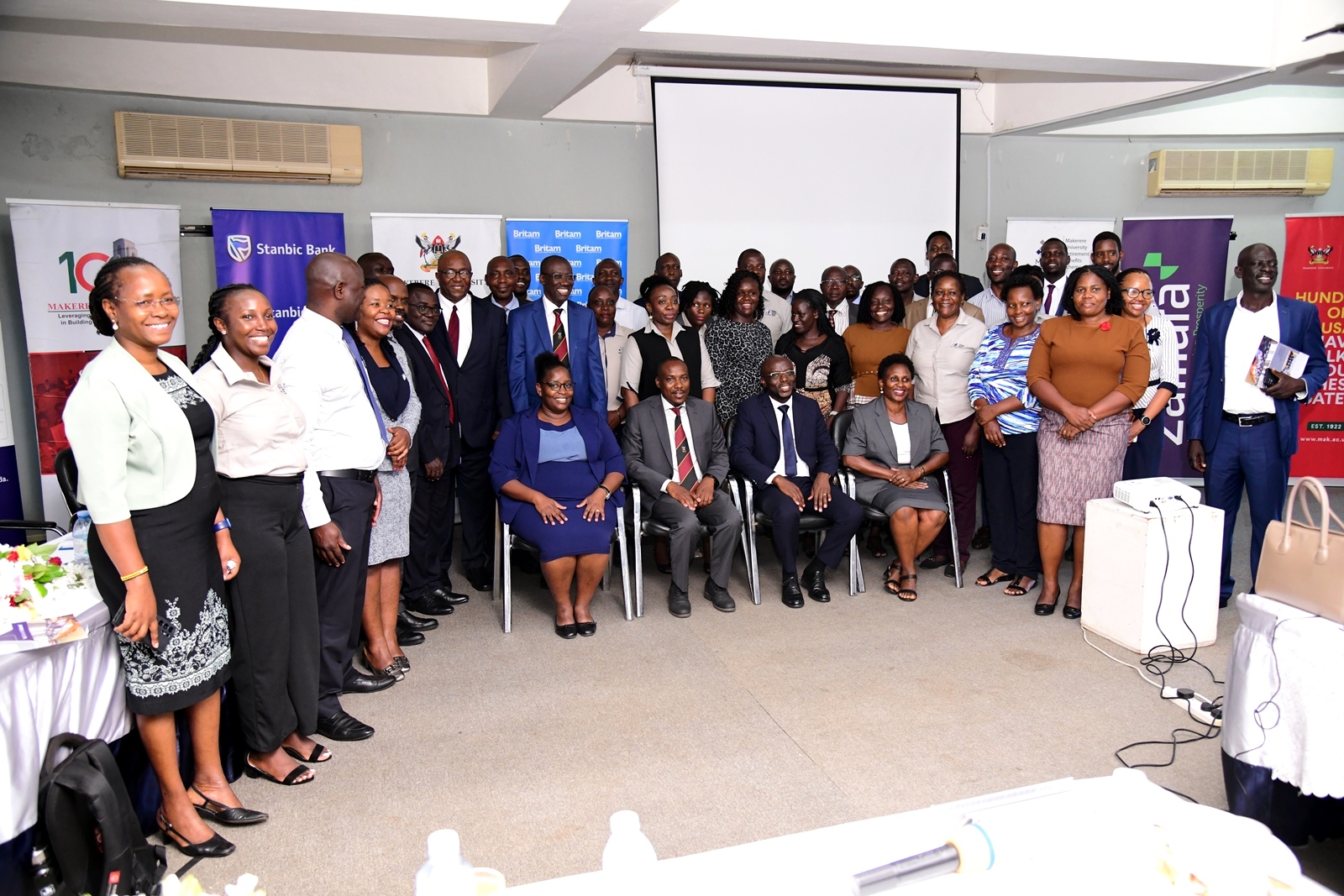
The Makerere University Retirements Benefits Scheme (MURBS) on 26th October 2023 declared an interest of 12.34% on members’ balances for the financial ended 30th June 2023. The declaration was made at the MURBS 13th Annual General Meeting (AGM) held on Thursday 26th October 2023 in the Yusuf Lule Central Teaching Facility Auditorium. The MURBS Fund value grew from UGX 299billion at the start of Financial Year 2022/2023 to UGX 352billion as at 30th June 2023. This growth resulted in a net return of UGX 42billion, which was distributed to members as interest.
The declaration was preceded by a presentation of the MURBS Performance for Financial Year 2022/2023 to members of the University Council and Management at a meeting held on Tuesday 24th October 2023 at the Telepresence Centre, Senate Building, Makerere University. The presentation was attended by the Chairperson of Council, Mrs. Lorna Magara represented by the Chairperson Finance, Planning, Administration and Investment Committee (FPAIC) of Council, Mr. Bruce Balaba Kabaasa, the Vice Chancellor, Prof. Barnabas Nawangwe represented by the University Secretary, Mr. Yusuf Kiranda, Acting Deputy Vice Chancellor (Finance and Administration), Prof. Winston Tumps Ireeeta, Director Quality Assurance, Dr. Cyprian Misinde, Acting Director Human Resources, Mr. Deus Tayari Mujuni and Acting Dean of Students, Mr. Peter Rivan Muhereza. The CEO Uganda Retirements Benefits Authority (URBRA), Mr. Martin A. Nsubuga was represented by his Head of Supervision, Mr. Lubega Rodgers.
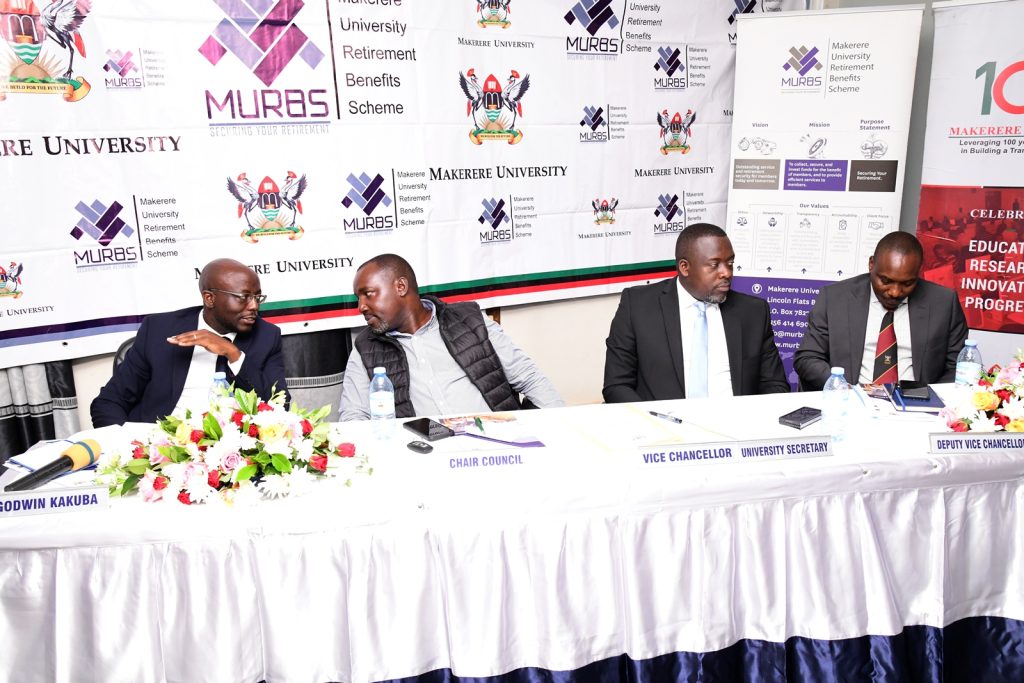
During the Year, the Trustees operationalised the Trust Deed and Scheme Rules (TDSR) as amended on 30th May 2023. Overall, the amendments facilitated governance, policy, and operational changes and enhancements, further streamlining and strengthening the Scheme. Effective with the new TDSR, the Board composition changed from five (5) to seven (7) Trustees. As at 30 June 2023, the Board was composed of six (6) Trustees, pending appointment of the independent Trustee.
Changes in the Board of Trustees
During the year, the Board discharged one member and appointed three members. The changes involved the retirement of Mr. Wilber Grace Naigambi who completed his term on 31 March 2023 and he was replaced by Dr. Elizabeth Patricia Nansubuga as MUASA’s representative. In a special way, the Trustees recognise and appreciate the contribution of Mr. Wilber Grace Naigambi, who served on the Board of Trustees from 2016 to 2023. In addition, Dr. Deus Kamunyu Muhwezi and Mr. George Bamugemereire, who are Council representatives, joined the Board in May and June 2023 respectively.
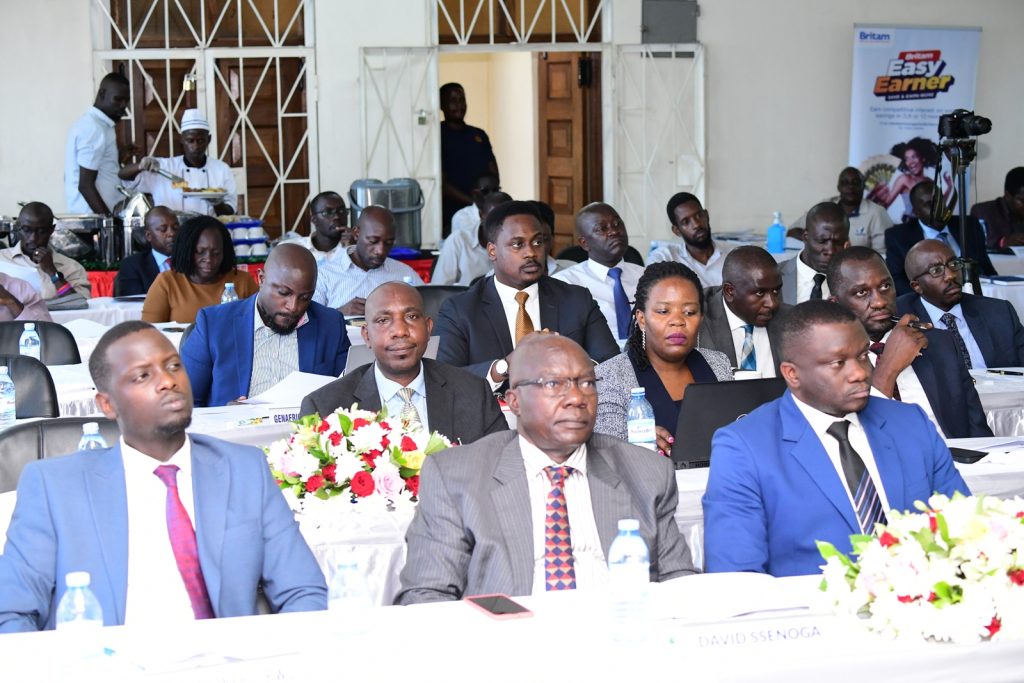
Presentation of FY 2022/2023 Performance
Presenting the 2022/2023 performance on behalf of the Chairperson, Dr. Elizabeth Patricia Nansubuga, the Secretary Board of Trustees, Dr. Godwin Kakuba announced that on June 2021, MURBS became the first mandatory Employer-based Scheme in Uganda. Furthermore, he shared that the aforementioned TDSR amendment of 30th May 2023 that changed the Board of Trustees’ size from five to seven also introduced the “Midterm” access by members to 12% of their accrued benefits, provided they are at least 45 years old and have saved with the Scheme for at least ten years .
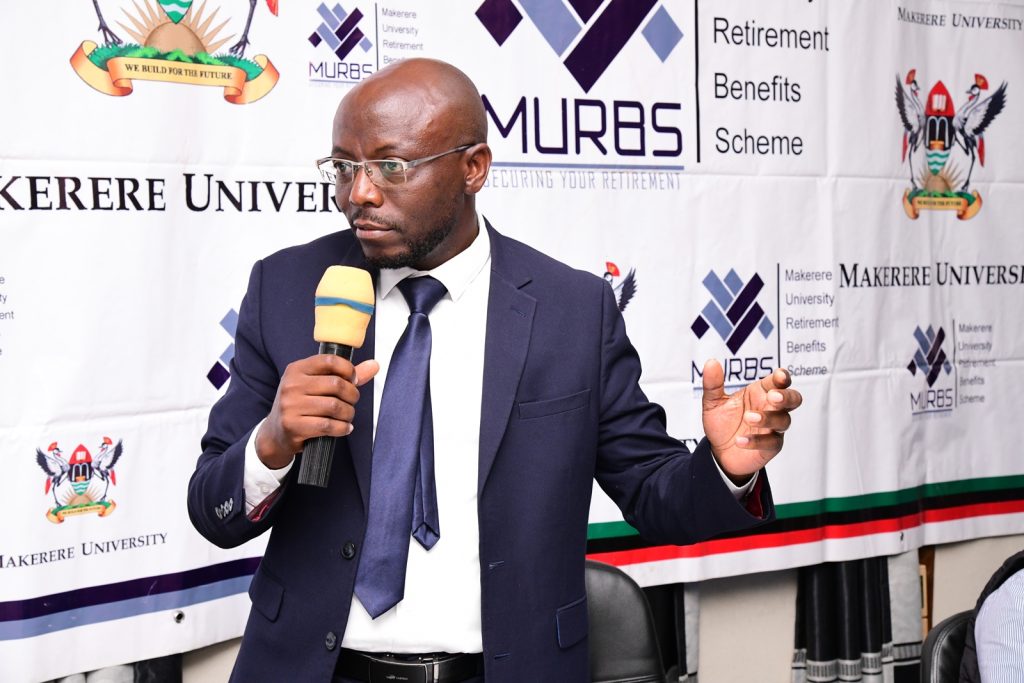
The Chairperson’s presentation nevertheless cautioned that whereas members were entitled to Midterm access of their funds, it had long-term effects on fund value and return on investment of their cummulative retirement benefits. For example, due to Midterm access in 2022/2023, sixteen Members’ savings shifted from the UGX 200-250million to the UGX 150-200million range, while five members shifted from the UGX 50-100million to the below UGX 50million range.
The shifts due to Midterm access notwithstanding, one members’ savings moved from the UGX 400-450million to the UGX 450-500million range, while three members joined the UGX 400-450million range. The largest number of members; 1,640 out of a total of 3,041 active accounts (53.9%) fall in the category of savings below UGX 50million, a slight improvement from 54.8% last year.
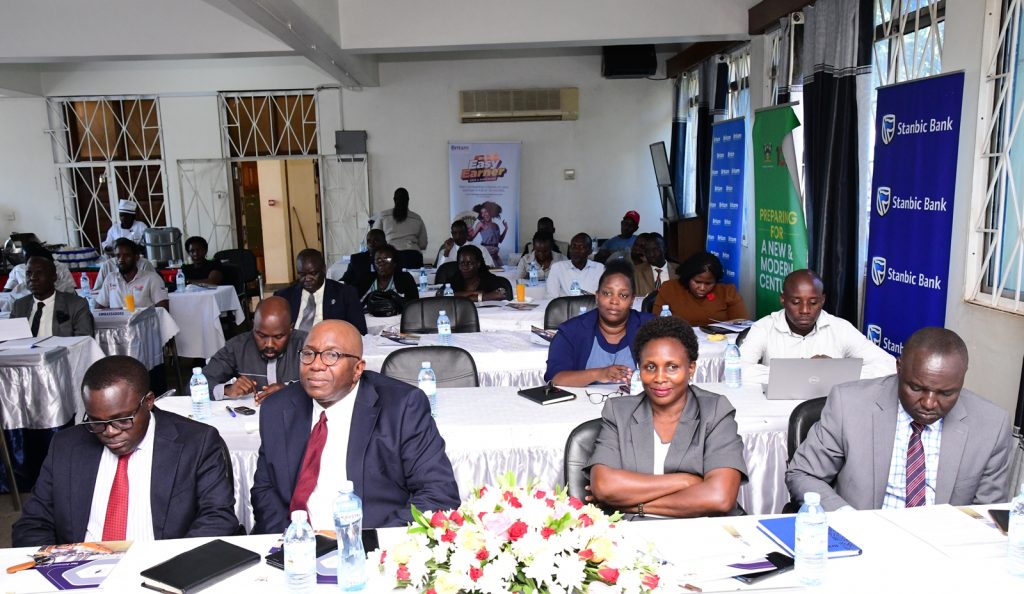
“In a period of five years the Scheme has moved from no one holding benefits above UGX 250million to having 270 members holding benefits above UGX 250million with five of them being above UGX 400million as of 30th June 2023… The Scheme strives to move more members from the lower bands to the upper bands by ensuring timely collection and prudent investment of their contributions” remarked Dr. Kakuba on behalf of the Chairperson.
Dr. Kakuba concluded the Chairperson’s presentation by thanking the University Council and Management for their cooperation and timely remittance of all members’ contributions to the fund. “We thank all the stakeholders who have worked with MURBS to ensure a successful Financial Year, in a special way, we thank you the sponsor for making time for this occasion.”
Responses to Chairperson’s presentation
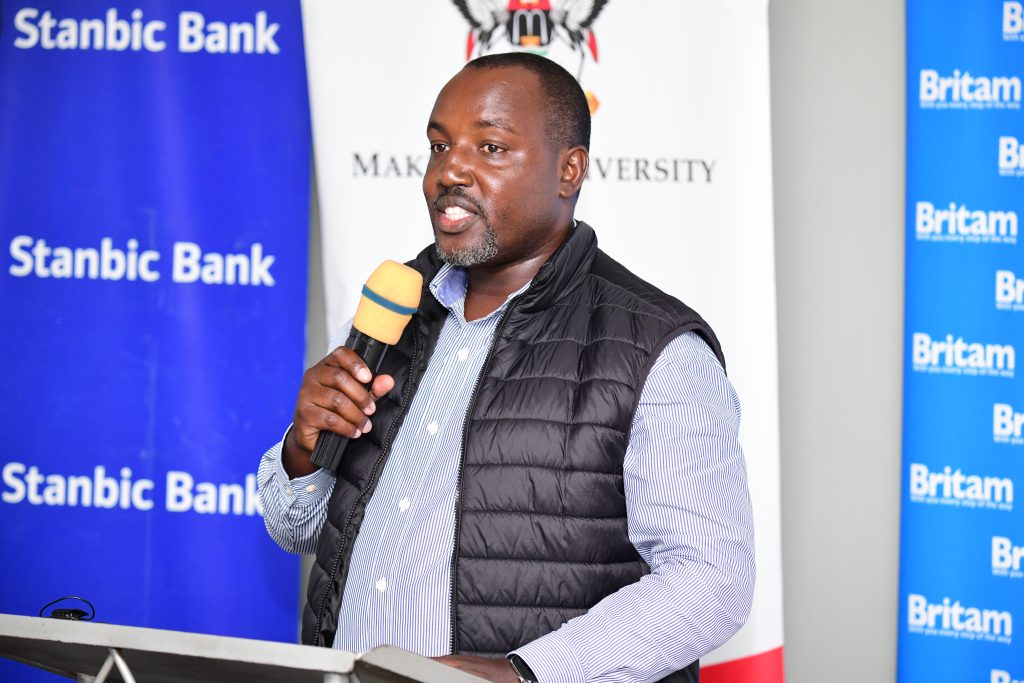
Responding to the presentation, Mr. Bruce Balaba Kabaasa appreciated the Board for successfully sustaining the Scheme’s operations for the last thirteen years. He nevertheless urged the Trustees to consider a long and detailed strategic plan to serve as the blueprint for the Scheme Funds’ management and investment, so as to safeguard member benefits from challenges that may arise as the value appreciates.
“I am particularly happy that those of you who have been at the forefront of agitating for staff welfare are now very close to the management of MURBS”, he added in reference to Dr. Deus Kamunyu, former Makerere University Academic Staff Association (MUASA) Chairperson.
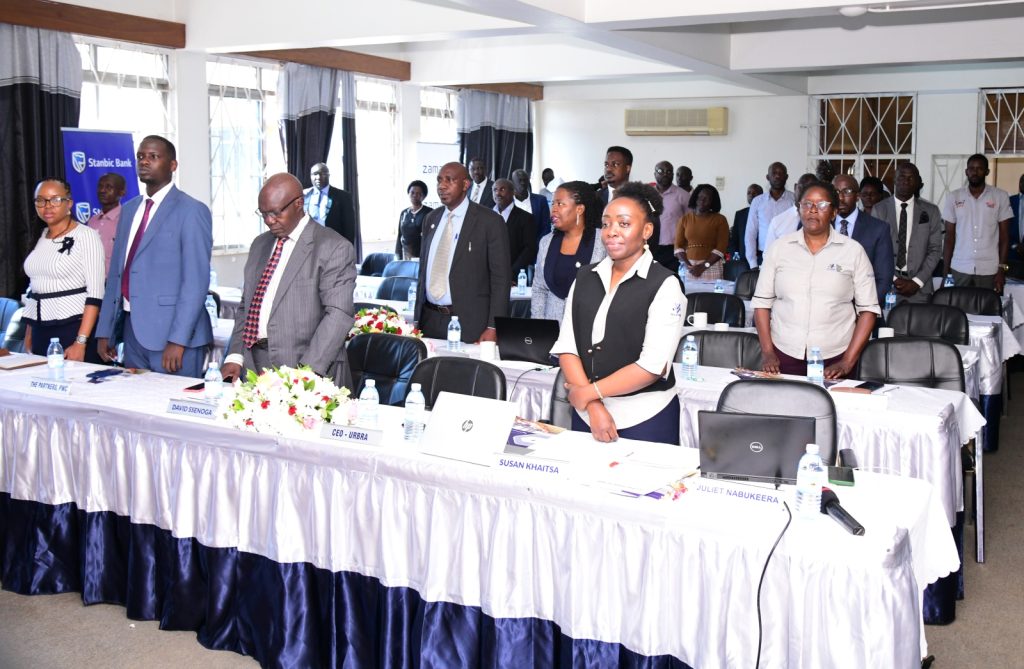
Mr. Kabaasa nevertheless took difference with the MURBS opinion that Midterm access to funds before retirement should be discouraged. He noted that from the sustainable development perspective, “you don’t compromise today because you are planning for the future.
“My view therefore, is that man or woman should be given an opportunity closer to retirement to start putting one leg into the waters to test how deep they are in order to be able to put in both legs later, well knowing the depth of the river or lake” he remarked. This he justified by noting that it is better for one to lose 12% of their retirement benefits to poorly researched investment now, than lose 100% at retirement when they have no chance for reprieve.
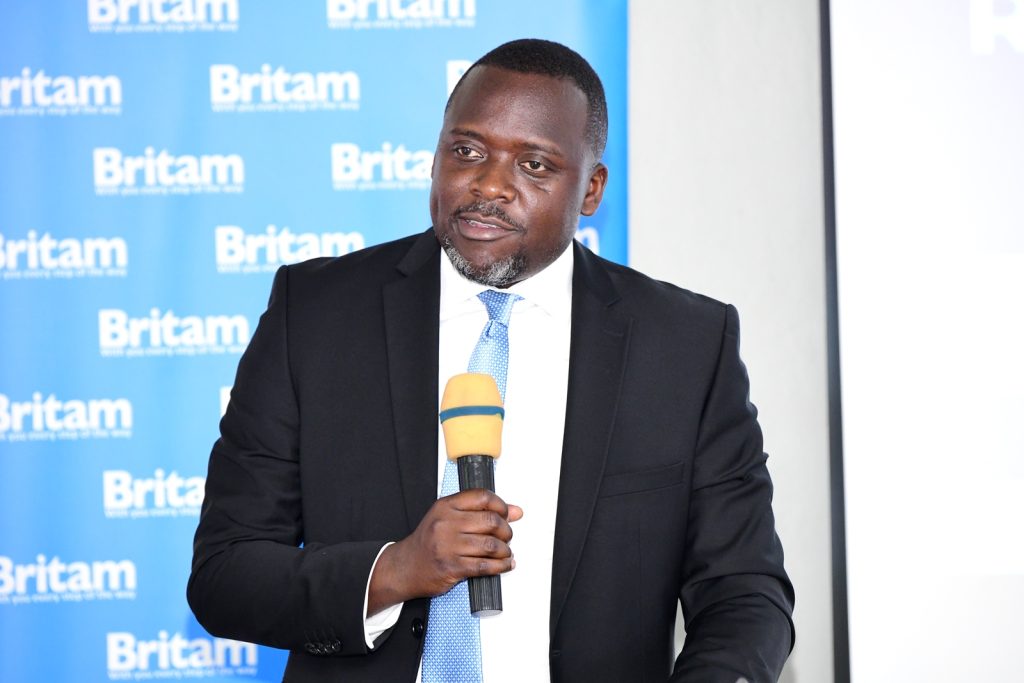
On this note, Chairperson FPAIC urged MURBS to step up its member education programmes on what works or doesn’t work for various investment vehicles they are likely to engage in. “You should be involved in making sure that our people have the required skill, the required mindset and the required understanding of the opportunities available within our economies and beyond.”
Delivering the Vice Chancellor’s remarks, Mr. Kiranda noted “the story of MURBS is simply one of the many good stories that will continue to stream out of Makerere year after year.” He added that “The Chairperson’s presentation of MURBS’ good performance for the year 2022/2023 is very much appreciated by the University Management for it encourages the employees of Makerere University to remain focused on their core mandate, confident that their retirement benefits are secure.”
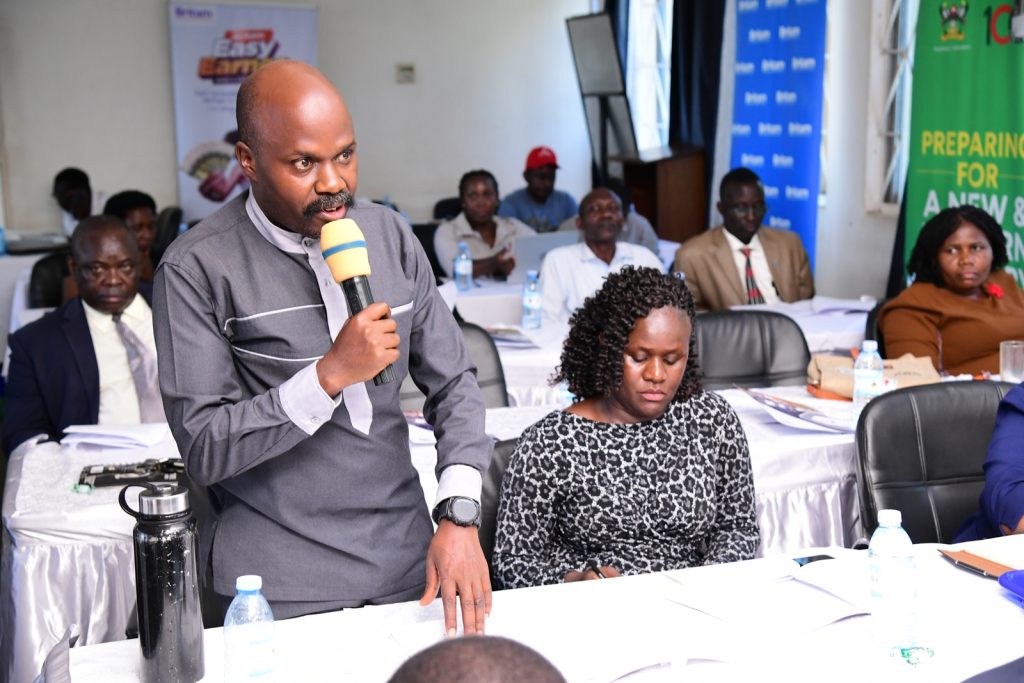
He lauded the MURBS Board of Trustees for upholding professionalism and integrity, noting that the University Management has not received complaints concerning retirement benefits from any former employee of Makerere University over the last five years. The Vice Chancellor equally acknowledged the tremendous contribution by the Government of Uganda to a thriving sector by paying salaries on time, contributing to retirement benefits and creating an enabling environment for Schemes and their service providers to invest member funds.
On the subject of Midterm access, Mr. Kiranda re-echoed the Chairperson Council’s call to invest more in training members on how best to invest their retirement benefits. “Chairperson (of MURBS Board of Trustees), Management committed to work with you to do further sensitization and that commitment is still open.”
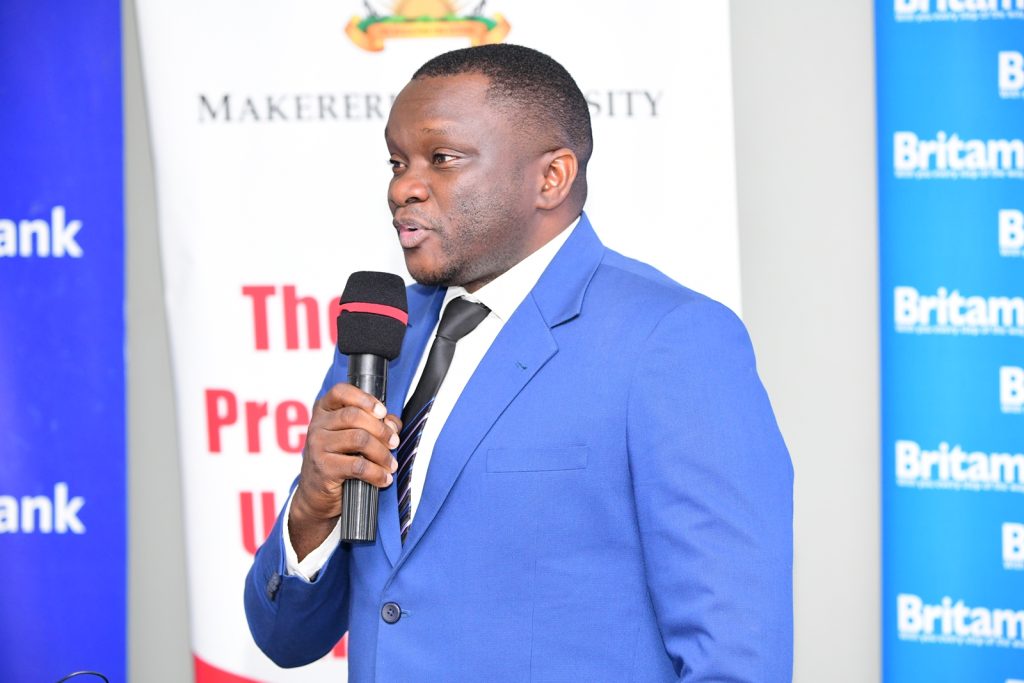
On behalf of the CEO URBRA, Mr. Lubega commended the MURBS Board for always addressing matters raised by the regulator during onsite inspections. He noted that the retirement benefits sector growth over the last ten years has not been by coincidence, but rather due to strengthened supervision. According to the URBRA website, Uganda currently has UGX 20.56trillion worth of assets under management in the retirement benefits sector.
“I am happy to communicate that Makerere University Retirement Benefits Scheme is one of those schemes that have really implemented these regulations of retirement benefits… the controls put in place by this Scheme can actually show you that they are moving in the right direction so thank you so much Board” commended Mr. Lubega.
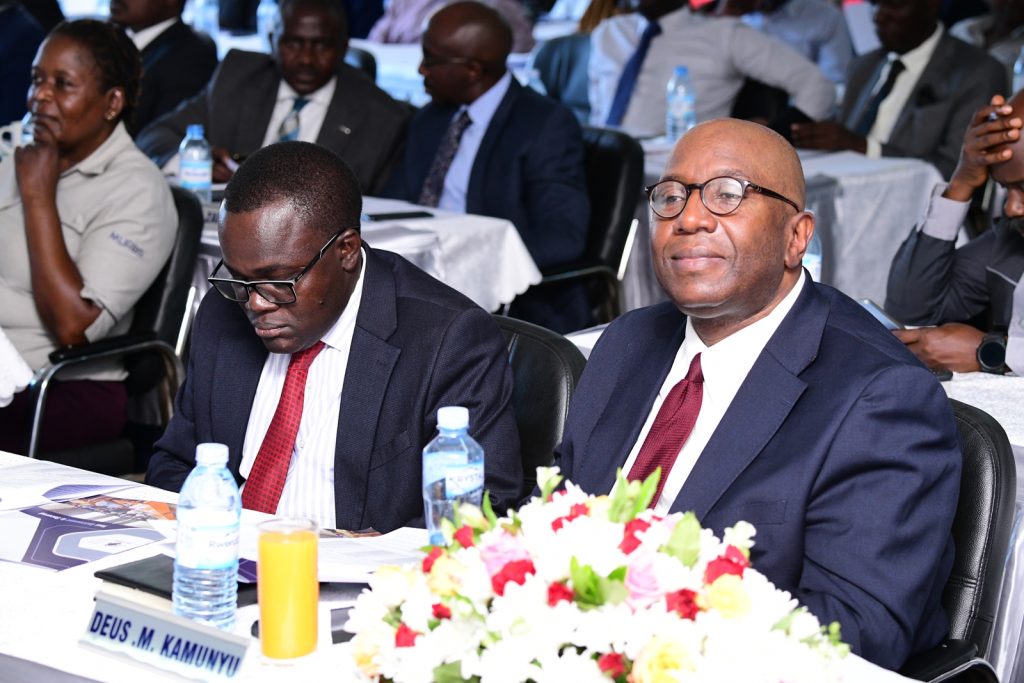
Delivering the closing remarks at the presentation, Mr. Bamugemereire thanked all members and service providers for attending the event, reminding all present that planning for retirement starts the day one is employed. As a Trustee, he appreciated the lengths that URBRA goes through to ensure that Trustees are well trained and equipped to perform their duties. “I want to inspire you with confidence that the Scheme is in safe hands.”
You may like
-


Simplicity, Service & Scholarship: Hallmarks of Professor Livingstone Luboobi’s Legacy
-
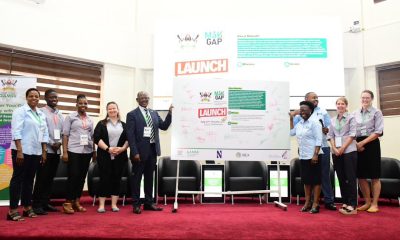

Launching The MakGAP
-
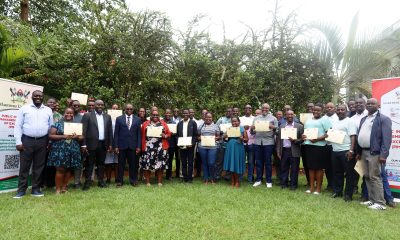

Makerere’s PIM Centre Concludes Training on Certificate of Financial Implications (CFI)
-
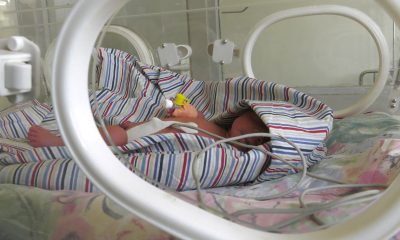

Call For Applications: PhD Fellowship Training Position
-


Mastercard Foundation Board pays its inaugural visit to Makerere University
-
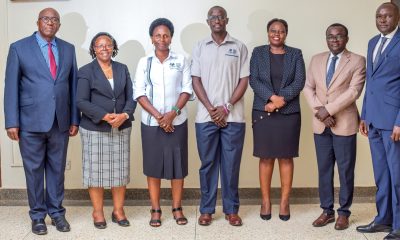

Call For Expression of Interest: MURBS MIS Requirements Gathering
General
Simplicity, Service & Scholarship: Hallmarks of Professor Livingstone Luboobi’s Legacy
Published
9 hours agoon
July 18, 2025By
Eve Nakyanzi
On Wednesday 16th July 2025, Makerere University lost one of its most cherished sons, Professor Livingstone Sserwadda Luboobi. Described as a mathematician, academic leader, and humble servant, Professor Luboobi devoted more than five decades to the university, rising through the ranks to become Vice Chancellor, and leaving a legacy defined by simplicity, service, and scholarship.
Born to Lameka Serwadda and Sanyu Serwadda on 25th December 1944 in Mitondo, Kalisizo, Kyotera District, Professor Luboobi’s academic career begun as a third-year student at Makerere and continued with unwavering loyalty until his passing. His life’s work reflected not only a commitment to mathematics but also nurturing generations of scholars and leaders across Uganda and beyond.
A funeral service was held in his honour at St. Francis Chapel, Makerere University on 18th July 2025. It was a moment of solemn remembrance and heartfelt tribute. Rev. Canon Dr. John Senyonyi delivered the sermon titled “Only God Knows,” reminding mourners of the mystery and grace of life’s journey. Rev. Canon Geoffrey Byarugaba represented the Kampala Diocese at the service, while former St. Francis Chaplain, Rev. Dr. Canon Johnson Ebong thanked Professor Luboobi for spearheading the Chapel’s expansion. Friends, colleagues, and family members filled the chapel, joined in mourning but also in gratitude for a life that had deeply touched theirs.

Mrs. Lorna Magara, Chairperson of the University Council, spoke movingly about Professor Luboobi’s faithfulness, likening his life to the biblical call in Mark 10:43, “Whoever wants to become great among you must be your servant.”
In his condolence message, the Vice Chancellor, Professor Barnabas Nawangwe, hailed Professor Luboobi as a visionary leader whose legacy is deeply woven into Makerere’s identity as a research-led institution. He credited Professor Luboobi with laying the groundwork for a culture of inquiry—championing graduate programmes, encouraging doctoral training, and fostering international collaborations that strengthened the university’s research profile. “He believed in building systems, not just structures,” noting that many of Makerere’s current research policies stem from his leadership. Even in retirement, Professor Luboobi remained a source of wisdom and guidance, quietly shaping the future of the university he so deeply loved.
Speaker after speaker painted a portrait of a man who led not by pomp, but by quiet strength and deep conviction. The Principal, Professor Winston Tumps Ireeta, speaking on behalf of the College of Natural Sciences (CoNAS), described Professor Luboobi as a foundational figure whose influence is deeply etched in the structures and spirit of the college. He spoke with emotion about Luboobi’s unwavering commitment to academic integrity and his belief in the power of mentorship.

“He was not just a mathematician,” Professor Ireeta said, “he was a visionary who understood the soul of the university. Even in retirement, he remained an advisor, a guide, and a quiet force of wisdom.” He concluded by saying that the college would continue to draw from his example as it navigates the future of science and innovation in Uganda.
Professor Luboobi’s illustrious career at Makerere University included serving as Head, Department of Mathematics from 1990 to 1991. The current Head of Department, Dr. Ismail Mirumbe remembered him as a pillar in the teaching and development of mathematics in Uganda
Professor John Mango, who served as Head, Department of Mathematics during Professor Luboobi’s term as Vice Chancellor from 2004 to 2009 described him as a towering figure of integrity and principle, someone who not only upheld the highest standards of academic conduct but insisted that others around him do the same. “He was a pillar in the department,” Prof. Mango remarked, “and his moral compass was unwavering.”

He recalled instances where Professor Luboobi made firm decisions, including terminating contracts when integrity was compromised, setting a tone that shaped the department’s reputation for honesty and excellence. Even as Vice Chancellor, he remained deeply involved in the department’s affairs, teaching, supervising students, all the while handling top administrative duties punctually. Prof. Mango spoke with great admiration of a man who led by example, mentored many, and whose contributions to mathematics education, research, and policy-making continue to shape the future of the discipline in Uganda and beyond.
According to an article from 1990 written by Dr. Vincent Ssembatya and Andrew Vince at the University of Florida, the Uganda Mathematical Society (UMS), which was formally established on 25th November, 1972 has since inception enjoyed major support from Makerere University and Kyambogo University in terms of infrastructure and leadership. Professor Paul Mugambi, who was also present at Professor Luboobi’s funeral service was elected first president of the UMS. Dr. Saul Nsubuga from the Department of Mathematics represented UMS at the service, honouring Professor Luboobi’s pioneering role in the discipline.
The service also featured tributes from close friends and family. Loved ones shared stories of a man who remained grounded no matter how high he rose, a man who valued relationships and walked closely with his faith. His children and grandchildren remembered him as a father who was ever-present, a listener, and a source of steady guidance.

Professor Daniel Kibuule, son of the late Professor Luboobi and Dean, Faculty of Health Sciences at Busitema University, delivered a deeply personal tribute that painted a full portrait of his father’s life, values, and final days. He expressed gratitude to the University leadership, family, friends, and medical professionals who stood with them during a challenging period. He particularly thanked his siblings, Dr. David Kimera and Dr. Irene Nakiyimba for their unwavering role in caring for Professor Luboobi through illness.
He spoke of a man who, despite great academic accolades, remained deeply humble and committed to discipline, simplicity, and faith. From instilling punctuality and responsibility to ensuring his children charted their own paths, none bearing his surname “Luboobi”, Prof. Luboobi was intentional in every lesson he passed on. Kibuule recalled his father’s insistence on being at home even in his final moments, his strong connection to Christ, and his quiet strength despite his failing health.
Former students and mentees echoed the same sentiments, of a teacher who was generous with his time and invested deeply in others’ growth. The community that gathered was not only there to grieve but to celebrate the quiet legacy of a man whose example continues to live on.
Among the mourners were public figures and leaders, including Hon. Abed Bwanika, Member of Parliament for Kimanya-Kabonera, Hon. Nyombi Thembo, the Executive Director Uganda Communications Commission, and Hon. Dr. Ham-Mukasa Mulira, former Minister of ICT, among others.
In his passing, Makerere University has lost a pillar, but his life reminds us that greatness lies in consistency, in humility, and in service to others. Professor Luboobi’s memory will continue to live on in the minds he shaped, the systems he built, and the values he embodied. He ran his race with grace.
The Writer is a Volunteer in the Public Relations Office, Makerere University
Please click the embedded video below to view the service livestream
General
Public University Legal and Accounting Officers Trained on Governance and Compliance
Published
2 days agoon
July 17, 2025By
Eve Nakyanzi
Legal and accounting officers from public universities across Uganda have convened, for a high-level training workshop organized by Makerere University. The three-day training, taking place from July 16th to 18th, 2025, is aimed at strengthening legal frameworks, improving institutional governance, and ensuring compliance with public finance and procurement laws within higher education institutions.
Ms. Lorna Magara, Chairperson of the Makerere University Council and Guest of Honour at the opening session, commended the initiative as timely and necessary. She addressed the growing backlog of court cases affecting Makerere and other public universities and outlined measures already taken to mitigate legal risks. These include the establishment of a Legal Rules and Privileges Committee and the Directorate of Legal Affairs, part of a broader strategy to improve legal compliance and foster good governance.
Representing the Vice Chancellor, Prof. Winston Tumps – Ag. Deputy Vice Chancellor (Finance and Administration), described the training as both strategic and practical. “It is imperative that we learn from each other, especially in how we handle employee litigation and institutional legal risks,” he remarked. He added that the program is designed to promote experience-sharing across universities and enhance collective institutional growth.

In his address, Mr. Yusuf Kiranda, University Secretary at Makerere University, emphasized the urgent need for robust legal oversight and more effective case management mechanisms within public universities.
The training featured a keynote address by the Attorney General of Uganda, Hon. Kiryowa Kiwanuka, who provided critical insights into legal expectations for public institutions. He warned that failure to heed legal advice could result in personal liability for accounting officers, citing a precedent involving the Uganda Cancer Institute. “Universities must consult the Attorney General’s chambers before entering into major contractual obligations,” he advised, urging legal officers to document decisions meticulously as proper record-keeping forms the first line of defense in legal disputes.

Hon. Kiwanuka further discussed the government’s ongoing efforts to recentralize legal services to ensure alignment with the Attorney General’s office. He cautioned in-house counsel against becoming overly entangled in decision-making processes, stressing the need for objectivity. Other key issues he addressed included contract approvals, misuse of Memoranda of Understanding (MoUs), and lapses in procurement processes, particularly at the close of financial years.
Participants also benefited from insights by Hon. Justice Musa Ssekaana of the Court of Appeal, who offered an in-depth analysis of judicial review and its significance in promoting lawful, transparent university governance. He called on university legal officers to act with clarity, timeliness, and accountability.
Lady Justice Joyce Kavuma, Judge of the High Court, delivered a comprehensive presentation on dispute and claim management involving public universities. She addressed emerging trends in civil litigation, emphasizing the importance of due process, transparency, and clear communication in resolving employment, student, and contractual disputes. Drawing on real case examples, she urged institutions to strengthen internal systems, embrace participatory governance, and adopt regional best practices to minimize litigation and protect institutional reputation.

The training reflects a shared commitment among public universities to build a more accountable, legally sound, and strategically aligned higher education system in Uganda. Through peer learning and collaboration, participating institutions aim to reduce litigation, enhance institutional autonomy, and uphold the rule of law.
Participating universities include Makerere University, Kyambogo University, Mbarara University of Science and Technology, Busitema University, Mountains of the Moon University, and Lira University.
The training concludes on July 18th 2025, with sessions focusing on employment dispute management in public universities and the implications of recent PPDA Appeals Tribunal decisions on procurement and disposal practices within public entities.
General
Celebrating the Life of Prof. Livingstone Sserwadda Luboobi
Published
2 days agoon
July 17, 2025By
Mak Editor
A Visionary Leader, Seasoned Mathematician, & Humble Academician
It is with profound love and respect that we celebrate the life of Prof. Livingstone Sserwadda Luboobi, a distinguished scholar, transformative leader, and beloved Vice Chancellor Emeritus of Makerere University. His legacy is woven in the fabric of African higher education, marked by intellectual brilliance, unwavering commitment to academic excellence, and a life of selfless service.
A Life of Purpose and Vision
Prof. Luboobi was more than a mathematician. He was a visionary, whose work transcended equations and research papers. Serving as Vice Chancellor from 2004 to 2009, he led Makerere University through a critical period of growth and transformation. Under his guidance, the university expanded its reach, strengthened its academic rigor, and embraced innovation and reform. His calm demeanour and principled decision-making earned the admiration of students, faculty, and peers alike.
Prof. Luboobi was deeply committed to nurturing talent and fostering intellectual curiosity, leaving an indelible mark on the institution’s culture and future direction.
Beyond Uganda, Prof. Luboobi’s influence resonated across the global academic community. He was a passionate advocate for the transformative power of science and education, often speaking at international forums and collaborating on research that bridged continents and disciplines. His work helped elevate the profile of African scholarship on the world stage.
His legacy endures not only in the impressive body of work he left behind but also in the countless lives he touched – students, educators, and leaders who continue to draw inspiration from him.
Academic and Leadership Journey at Makerere University
An illustrious alumnus of Makerere University, Prof. Luboobi graduated with First Class Honours in Mathematics, laying the foundation for an extraordinary academic journey. He pursued further studies at the University of Toronto (MSc in Operations Research, 1971-72) and the University of Adelaide (PhD in Biomathematics, 1978–80). His scholarly journey spanned prestigious institutions worldwide, including UCLA, the University of Bergen, and the University of Dar es Salaam, establishing him as a scholar of global repute and a proud ambassador of African intellectualism.
Prof. Luboobi’s service to Makerere begun in 1970 as a Special Assistant-remarkably, while still an undergraduate, rising through the ranks to full Professor in 1997. He served as Head of Department, Dean of the Faculty of Science (1994–2001), and later became the university’s first elected Vice Chancellor. His tenure brought new energy to institutional leadership, characterized by transparency, inclusivity, strategic direction and accountability.
Strategic Reforms and Institutional Impact
A true architect of transformation, Prof. Luboobi chaired the development of Makerere’s first locally-conceived Strategic Plan (1990–91). He was instrumental in securing a UGX30 billion grant from NORAD in 1999, which revitalized key academic areas such as computing, gender studies, and food science. He co-founded the Makerere University Private Sector Forum, bridging the gap between academia and industry, and strengthening alumni engagement and resource mobilization.
Pioneering Biomathematics and Mentorship
As one of Africa’s pioneering biomathematicians, Prof. Luboobi introduced mathematical modeling to tackle real-world problems in epidemiology, ecology, and operations research. His scholarly contributions – over 150 publications – reflect the depth and breadth of his research. Yet, perhaps his most lasting impact lies in mentorship: he supervised more than 35 PhD and over 50 MSc students, including Makerere’s first female PhD graduate in Mathematics, nurturing a generation of scholars and leaders.
Prof. Luboobi’s Contribution to the Internationalization of Makerere University
Prof. Luboobi played a pivotal role in advancing the international profile of Makerere University. Demonstrating remarkable personal commitment, he utilized his own resources to support the establishment of the University’s International Office. This strategic initiative laid the foundation for a more structured and effective engagement with global academic institutions, development partners, and international students. As a result, Makerere University significantly enhanced its global footprint, forming numerous international collaborations and attracting increased academic and research opportunities from abroad.
In addition to his contributions to internationalization, Prof. Luboobi was also instrumental in revitalizing the University’s Public Relations Unit. Under his guidance, the unit adopted more proactive and professional communication strategies, which greatly improved the institution’s public image. This, in turn, fostered greater public trust and strengthened the university’s reputation both locally and internationally. His visionary leadership in these areas has had a lasting impact, positioning Makerere University as a leading institution in East Africa and beyond.
Global Recognition and Enduring Legacy
Prof. Luboobi’s contributions earned him widespread recognition. In 2008, the University of Bergen awarded him an Honorary Doctorate for his role in internationalizing academia. Makerere University honoured him with a Lifetime Achievement Award in 2013, and the Government of Uganda conferred upon him a National Gold Medal for his unwavering service to education and national development.
Even after retirement, Prof. Luboobi remained an active contributor to academic life-lecturing, supervising, and advising the university.
A Lasting Light in African Academia
Prof. Livingstone Sserwadda Luboobi’s life was a model of scholarship anchored in service, leadership tempered with humility, and an unshakable belief in the power of education. He leaves behind a vibrant academic legacy and a trail of inspired minds. His contributions will continue to shape Makerere University, Uganda, and the global academic community for generations to come.
We extend our heartfelt condolences to his family, colleagues, and the entire Makerere University community during this difficult time.
May his soul rest in eternal peace.
Trending
-

 General2 weeks ago
General2 weeks agoRe-advert: Admission to Undergraduate Programmes 2025/2026
-

 General1 week ago
General1 week agoRe-Advert for Applications for Diploma and Certificate Training
-

 General5 days ago
General5 days agoMakerere University Fees Waiver for 40 First Year Female Students 2025/2026
-

 General2 weeks ago
General2 weeks agoPress Statement on Ranking
-

 Health1 week ago
Health1 week agoCall for Applications: Responsible Conduct of Research (RCR) Training Course
